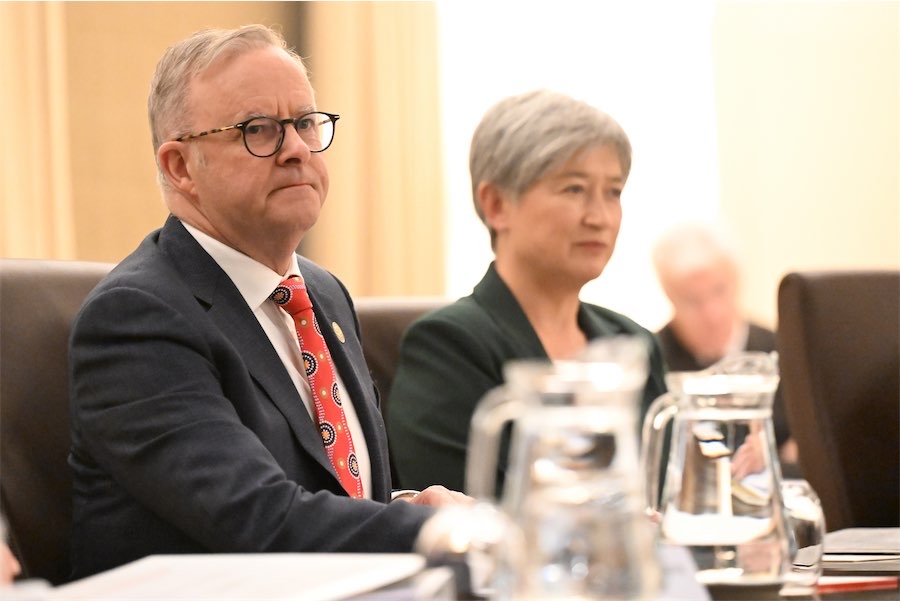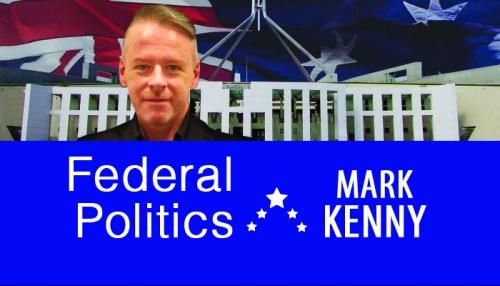 Following the failure of “Zero Waste 2010”, the Legislative Assembly now sits on a philosophical garbage dilemma with paths leading in two directions: One towards the use of waste for energy and the other towards compost.
Following the failure of “Zero Waste 2010”, the Legislative Assembly now sits on a philosophical garbage dilemma with paths leading in two directions: One towards the use of waste for energy and the other towards compost.
While the two are not mutually exclusive, the commitment to a 40 per cent emissions reductions target has tied the ACT Government and Minister Simon Corbell to the exploration of technologies that would see trash become electricity or gas, regardless of other proven processes to mitigate the environmental impact of rubbish.
Corbell, the Minister for environment and energy, told “CityNews” in September that a quarter of the 40 per cent reduction would come from an overhaul to the capital’s waste disposal.
In 2008, two per cent of Canberra’s emissions came from waste.
A December draft of the ACT’s waste strategy for the future presently awaits Government analysis of submissions, with Corbell confident a final report will be issued before the year is out.
Greens MLA Caroline Le Couteur wants to know why Corbell has not investigated the proven use of organic green bins and their contents to create compost from waste.
“We know Canberrans have accepted their recycling bin quite well, they may well do the organics very well, too,” Le Couteur says.
“It has worked just over the road in Goulburn, they’re doing well with their organic recycling.”
A trial of green bins by 2009 in the ACT was included in the Greens-Labor Parliamentary agreement that formed Government in 2008 and was an election policy of the Canberra Liberals.
“The Government’s got to use any strategy available to it,” Liberal MLA Alistair Coe says.
“There is scope to using recycled organic waste, augmenting a top soil in new housing developments. The Government needs to ensure dynamic use of waste, for zero loss.”
It’s a lack of dynamic ability that has Le Couteur concerned Corbell, Minister for Environment and Energy, is overlooking smaller-scale and more simple waste solutions in favour of complex technology that suits the aims of his other portfolios.
“I think, in general, they’re taking too much of an engineering approach and not taking the approach to get the best use of everything,” Le Couteur says.
The Greens are apprehensive about the draft strategy’s emphasis on the use of separation machinery, namely the “dirty murf” (materials recovery facility), the provision of which will be expensive and may require a contract stipulating the city provide a specific amount of waste annually.
“We’re concerned the capital expenditure on these machines will lock us into a future that is far from no waste,” Le Couteur says.
“If a contract is not well written, then the ACT could end up in a position where we can’t afford to reduce our waste.
“A much more integrated approach is needed, you can’t just use a machine to solve problems.”
Corbell’s office told “CityNews” the trial of green bins is still being considered as part of the draft waste strategy, as is as organic compost.
Who can be trusted?
In a world of spin and confusion, there’s never been a more important time to support independent journalism in Canberra.
If you trust our work online and want to enforce the power of independent voices, I invite you to make a small contribution.
Every dollar of support is invested back into our journalism to help keep citynews.com.au strong and free.
Thank you,
Ian Meikle, editor




Leave a Reply